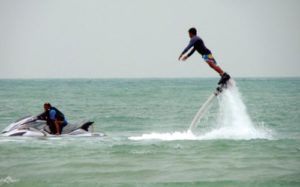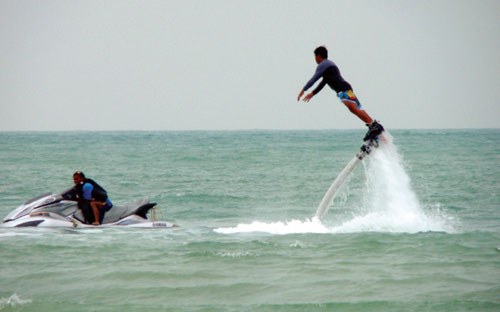Rising tourist scams and accidents add woe to Thai travel trade

Thailand’s image as a safe and secure destination for international visitors is being tarnished by an increase in reports of crime targeting foreign tourists and a spate of road, rail and boating accidents over the past year or so.
Travel operators said while the country has always had a poor transport safety record – it has the second highest incidence of road deaths per capita in the world – the rise in accidents involving tourists is a serious concern. More worrying is the spike in number of crimes targeting foreign visitors, which range from scams to violent robberies and even murder.
Traditionally, the travel trade prefers to stay quiet on the issue. As a senior executive at a regional DMC, speaking on condition of anonymity, said: “Most people in the industry won’t want to talk about it because everyone wants to promote an image of Thailand as a safe, secure and welcoming destination.”
That changed in November when several coach accidents involving Russian tourists happened over a couple of weeks, at least one of which was fatal. As a direct result, the Russian Union of the Travel Industry issued a letter to the director of Tourism Authority of Thailand (TAT)’s Moscow office, demanding that Thai authorities take immediate action to improve the safety of Russians visiting the kingdom or face cancellations from the association’s 5,000-plus members.
According to people familiar with the Russian market, this unprecedented warning was met by inaction from TAT (which also did not respond to questions on the matter from TTG Asia) and the Ministry of Tourism and Sports, to which the letter was addressed.
Kubilay Atac, general manager of Pegas Touristik Thailand, the main player in the local Russian market and one of the largest inbound operators in the kingdom, would not comment directly on the issue. He did say, however, that general security of his clients was a prime concern.
Russian visitors are common targets of criminals and conmen in crime hotspots such as Phuket and Pattaya. In a recent case, local media reported in late January a jet-ski rental company acting in collusion with two municipal officers had extorted 113,000 baht (US$3,473) from five Russians tourists in Pattaya for allegedly damaging the jet-skis they hired.
Kubilay said although the incident in question did not involve Pegas’ customers, it was indicative of a general trend for tourists to be ripped off by scam artists operating with seeming impunity.
“When problems happen they are communicated instantly,” he said. “If authorities do not address the issue it will have a huge effect on (Russian tourism) business in Thailand.”
Pegas has put contingencies in place to protect its clients. “We tell them to call us on a special number if they have problems,” said Kubilay. “We’ll immediately send staff to help them. We can’t make the problem go away completely, but we can normally help negotiate the ‘fine’ down from tens of thousands of baht to a couple of thousands (in the case of jet ski scams).”
Commentators put the general lack of response from police and other authorities down to corruption and complacency. But it has been shocking in some high-profile cases, such as the case of seven tourists who died after staying at The Downtown Inn in Chiang Mai in 2011. Some analysis blamed the use of pyrophus, a pesticide, in the property, which was owned by a former city mayor. To date no one has been held responsible for the deaths and the property has been demolished.
While the vast majority of tourists visit the kingdom without having any significant problems, authorities are unlikely to tackle problems that do exist unless the travel trade collaborates and applies more pressure, said Andre van der Marck, general manager, Khiri Travel Thailand.
“We should make a difference by speaking out more on the subject,” he said.
According to the UN World Health Organization’s Global Status Report on Road Safety 2013, Thailand has the second worst road safety record in the world after Niue, an island in the South Pacific. That year the kingdom had 13,365 reported fatal road traffic accidents from a global total of 1.2 million – equivalent to about 38.1 road deaths per 100,000 population.
It’s not only the roads that seem risky. There were 13 train derailments on Thailand’s northern tracks alone from January to September last year, according to Bangkok Post, and 114 accidents across the network within that period.
Pornthip Hirunkate, a vice president at the Tourism Council of Thailand, said all stakeholders, especially the authorities, have a responsibility to help improve the situation. “It is imperative that Thai authorities enforce all the relevant terms and conditions pertaining to the licensed operators,” she said. “We would like to see frequent checks in order that everyone operates within the conditions set out by the licence/permits – which in turn ensures security and safety for all concerned.”




















